Premium Only Content

(10) The Tactics against Truth
https://www.facebook.com/groups/974332723871967/permalink/1045165073455398/?mibextid=rS40aB7S9Ucbxw6v
Chapter 10: The of Tactics against Truth
How can I undermine truth? I can undermine truth by affirming wrong choices, giving credibility to bad questions, and trusting deceptive speculation.
An artist tells his or her arts students “there is no wrong answer”, and receives a blank page. A doctor tells his or her medical students “there is no wrong answer”, and the patient dies. A teacher tells his or her students “there is no wrong answer”, and the students become susceptible to lies. A judge says “there is no right definition”, and the nation loses its fundamental principles.
Wrong choices are not beneficial. Right choices are beneficial. A choice is not right simply because the objective is beneficial. A choice is right because the overall effects of the choice are beneficial. In some situations there are adverse side-effects to choices that are tolerable. In some situations there are adverse side effects to choices that are not tolerable. A beneficial objective with intolerable side effects is still a wrong choice. One wrong choice teaches others to make wrong choices. One right choice teaches others to make right choices.
https://www.smashwords.com/extreader/read/801094/32/the-war-against-truth
Some situations only have one right choice. Some situations have more than one right choice. In some situations, only one set of conditions can lead to a beneficial outcome. In some situations, different conditions can lead to a beneficial outcome. The existence of only one right choice does mean that all other choices wrong. However, the existence of more than one right choice does not mean that all other choices right.
Do you think that a person can be wrong even if one of their objectives was beneficial? If a person makes a choice that produces severely adverse side effects, when do you think the person be punished for negligence and when should the person be shown mercy and forgiveness?
A politician was asked “Do you think it is still possible for you to win the election even though you are incompetent and dishonest? Please respond with only a Yes or No response.” The politician responded “Yes”.
Bad questions cannot be answered with a beneficial answer. Good questions can be answered with a beneficial answer. Bad questions can be false and/or inappropriate. A false question contains a false assumption. To answer a false question is to unwittingly accept and acknowledge the false assumption. An inappropriate question is a question that has no beneficial answer. To answer an inappropriate question is to give authority to the disingenuous purposes behind the question.
When we are dishonest, we say “There is no such thing as a bad question.” When we are honest, we acknowledge that some questions are bad because they are either false or inappropriate. A false question should be responded to with a clarification of the false assumption. An inappropriate question should be responded to with a clarification or rebuke for the disingenuous motivation behind the question.
What do you think could be consequences of answering a false question? Do you think that people are usually aware that they are asking a false question? What do you think could be the consequences of answering a misappropriate question? What do you think could some of the motivations people have for asking a misappropriate questions?
https://www.smashwords.com/extreader/read/801094/33/the-war-against-truth
A lawyer brought a random citizen to the witness stand. The lawyer asked the random citizen, “These doctors say that the defendant is guilty, do you agree?”. The random citizen asked, “What is the evidence that the defendant might be guilty?” The lawyer responded, “These doctors are only the evidence. They are excellent judges of character.” The random citizen asked, “Did these doctors witness the defendant commit the crime?”. The lawyer responded “No”.
Deceptive speculation is when a source of authority speculates beyond its actual evidence or expertise and misrepresents the results as being credible conclusions. Deceptive speculation can occur when a source of authority subjectively misinterprets a set of objective information. Deceptive speculation can also occur when a source of authority objectively interprets a set of subjective information or misinformation. Deceptive speculation can be produced when people in authority become complacent and do review and verify each other’s conclusions. Deceptive speculation can proliferate when people in authority lack the integrity to rebuke each other for misrepresenting speculation as being credible.
When we are dishonest, we say “It is true because it seems reasonable and is affirmed by people in authority”. When we are honest, we investigate to determine whether a result is an actually a credible conclusion or whether it is the result of speculation. Speculation is when a when a person subjectively interprets an incomplete or isolated set of evidence. Credible conclusions are when a person objectively interprets evidence using the complete set of other applicable evidence. The ignorant and foolish make important decisions based on speculation. The discerning and wise detect and expose speculation and only make important decisions based on creditable conclusions.
Can the same person produce both credible conclusions and speculation? Is everything that an intelligent person writes privately worthy of being published publically? What do you think can motivate someone to misrepresent speculation as being a credible conclusion? Why do you think it is important to discern which information is speculation and which information is a credible conclusion? What are some ways you might test whether something is actually a credible conclusion or whether it is just speculation?
https://www.smashwords.com/extreader/read/801094/34/the-war-against-truth
-
 1:27:55
1:27:55
Game On!
18 hours ago $6.63 earnedThe BIGGEST Hockey Match of the Century: USA vs Canada!
95.9K8 -
 17:20
17:20
Bearing
2 hours agoElon Musk's Baby Mama Drama 😧 Did he Stick it in CRAZY??
26K6 -
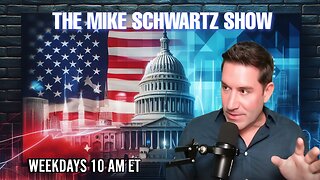 1:10:27
1:10:27
2 MIKES LIVE
3 hours agoTHE MIKE SCHWARTZ SHOW with DR. MICHAEL J SCHWARTZ 02-20-2025
16K2 -
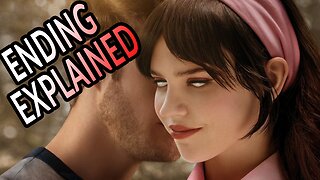 10:33
10:33
ThinkStory
20 hours agoCOMPANION Ending Explained!
75.5K4 -
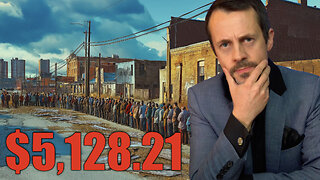 19:59
19:59
Neil McCoy-Ward
20 hours ago🇺🇸 $5,128.21 DOGE Stimulus Check Refund?! Here’s What You Need to Know!
56.9K26 -
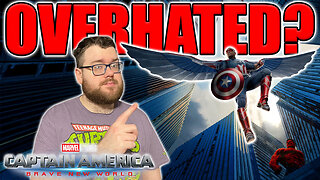 29:22
29:22
Degenerate Jay
23 hours ago $4.76 earnedIs Captain America: Brave New World That Bad? - Movie Review
57.7K7 -
 2:35
2:35
Mrgunsngear
22 hours ago $5.18 earnedFrying Pan As Improvised Body Armor?
73.9K29 -
 9:07
9:07
Silver Dragons
21 hours agoThis GOLD REVALUATION Will Change Everything
65.3K15 -
 9:16
9:16
MudandMunitions
21 hours agoGriffin Armament 3x Prism Optic Unboxing and First Impressions! The Ultimate Tactical Upgrade
53.4K2 -
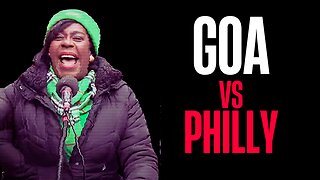 6:01
6:01
John Crump News
21 hours ago $2.06 earnedGOA vs. Philly: The Fight Starts!
39K3